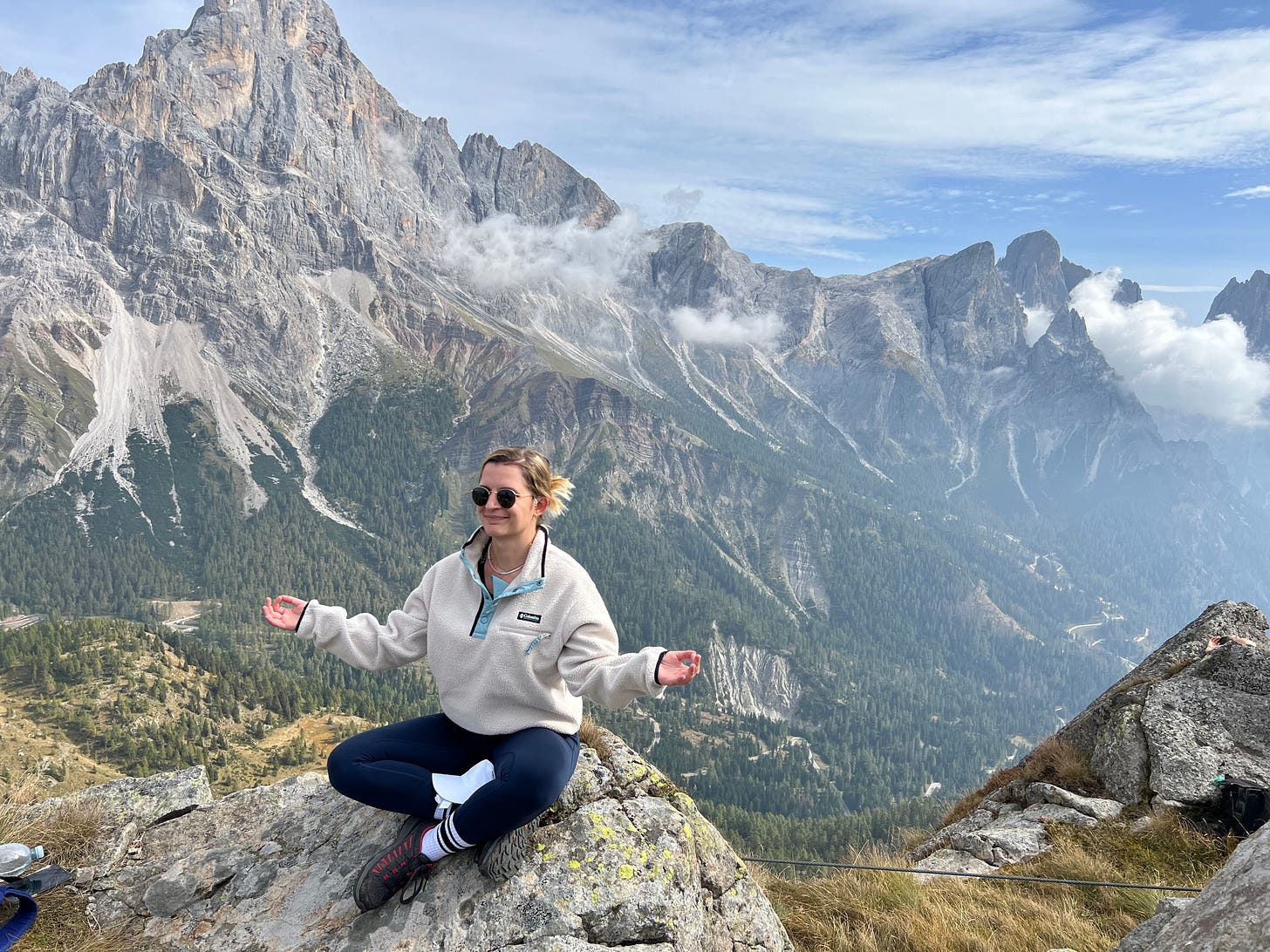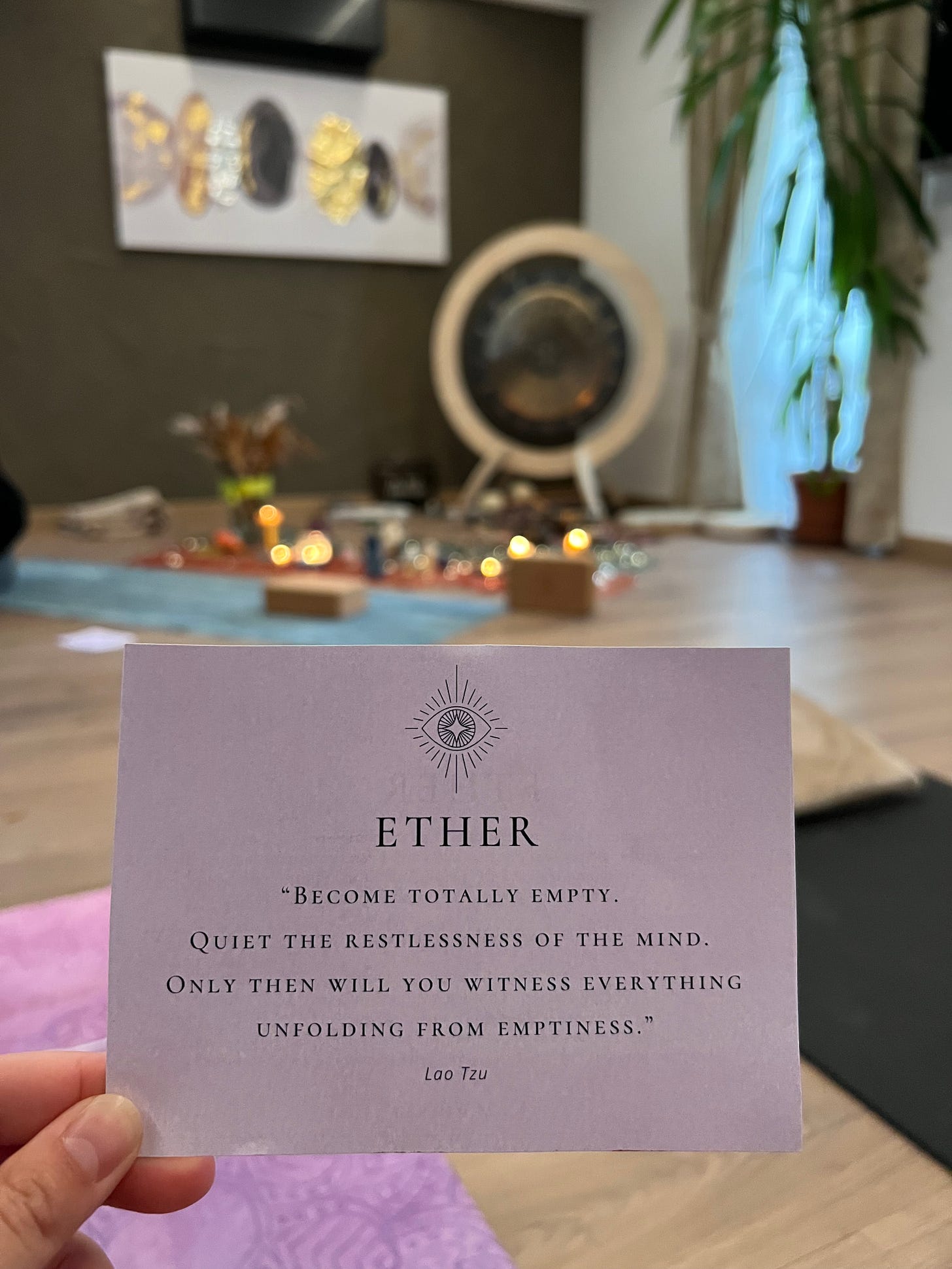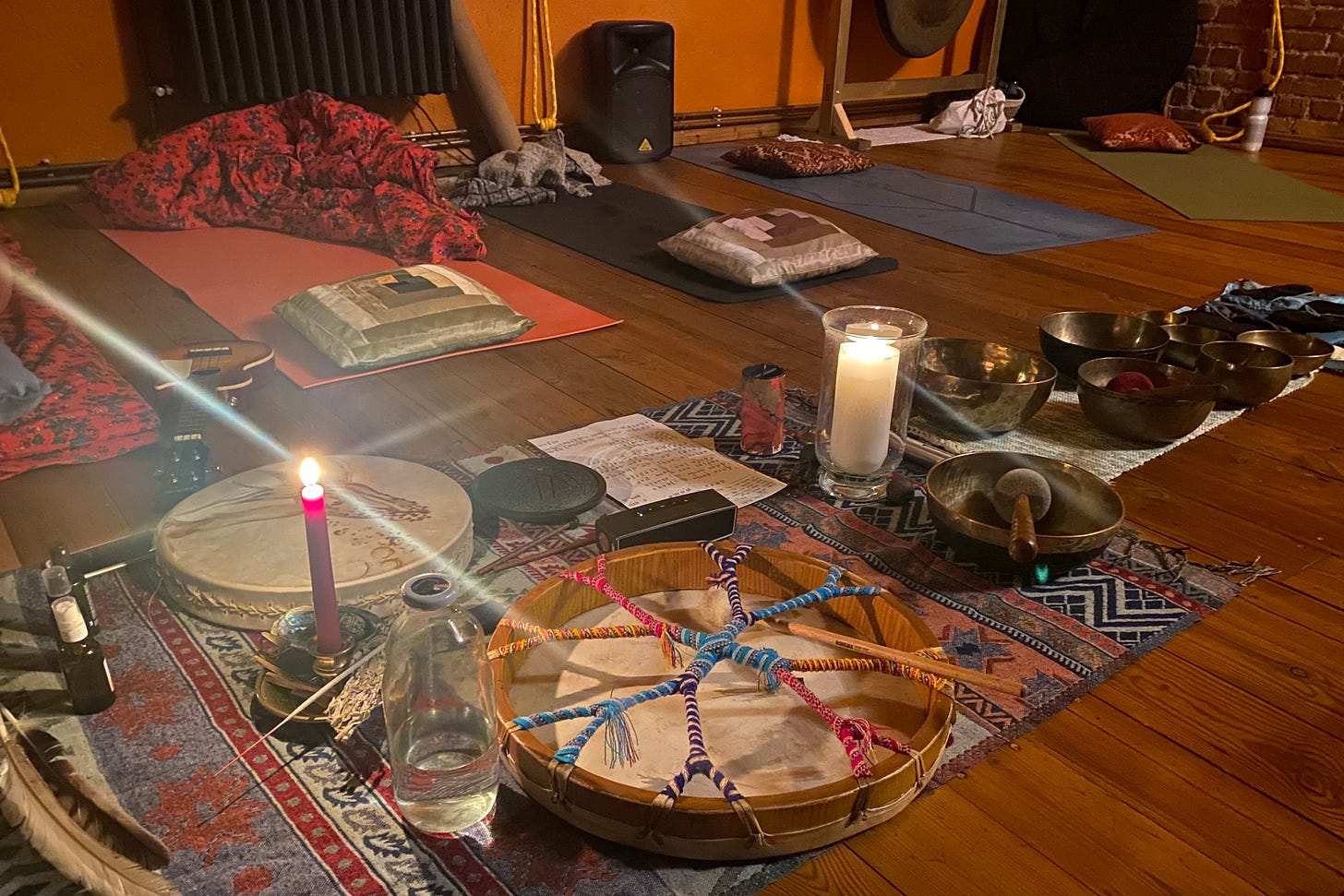Lessons From the Mat : How Yoga Helped Rewire My Brain
🧘♀️ Mindful & Intentional Living #3
The yoga teacher began the class with:
“Take a yoga block and lift it above your head. Keep holding it.
Breathe in. Breathe out. Keep holding. Just a little bit more.
Breathe in. Breathe out.
Good. Take the block down.
Was the block getting heavier?”
Everyone nodded, shaking out their shoulders, which were burning by this point.
“You’re wrong. The block remained the same weight. But the longer you carry something, the heavier it would feel. And the same happens in our lives.”
BOOM. I was sold.
That moment happened about six years ago, in a new yoga studio with a teacher I decided to “experiment” with. Until then, I’d been trying to force myself to like yoga, because everyone said I should. I saw yoga classes as glorified stretching sessions. I struggled immensely with stillness and mindfulness. I even once ended up in a Yin Yoga class by accident and hated every minute of it.
Fast forward to today: I still go to classes with that same teacher weekly. I’ve found others I resonate with, and I practice 2–3 times a week. I mix in Yin Yoga, Restorative Yoga, and Sound Healing, alongside the more physical classes. I’ve been to four yoga retreats and a few “advance your practice” workshops.
In short: I LOVE IT.
What Is Yoga, Really?
One of the most important things I’ve learned is that yoga is unique to everyone.
In Sanskrit, yoga means “to join” or “to unite.” It’s about connecting the internal and the external, the body and the mind. Since every person’s body and mind are different, the practice naturally becomes deeply personal. The styles, teachers, and philosophies that resonate with you may not work for someone else - and that’s the beauty of it.
Over time, I started noticing parallels between what I was learning on the mat and how I was living outside of it. Below are two of those lessons. Funny enough, while writing them down, I realized they didn’t sound like yoga lessons at all, which means you might find something in them even if yoga isn’t your thing.
Life Happens Now
One of my favorite yoga practices follows a fairly repetitive sequence. Over time, your body just knows what’s coming next. It’s become so familiar that I could almost do it with my eyes closed.
But sometimes, small changes are introduced:
Maybe you’re asked to hold your leg in Three-Legged Dog for longer.
Maybe instead of flowing through a vinyasa, you're told to pause and hold plank.
Tiny adjustments, but what usually happens is that people, myself included, automatically move on out of habit. That’s when the teacher usually laughs and says:
“Live in the now, people.”
That phrase has stuck with me.
Practicing yoga regularly can easily lead to “autopilot mode.” I call it “a muscle bias”. The mind starts to wander. You think about the peak pose coming up or the coffee you’ll get after class. Or you’re still irritated because the U8 stopped for 10 minutes between stations.
Sound familiar? You don’t need to have been in a yoga class to relate.
Most of us are constantly living in the future, or clinging to something from the past. Overthinkers (hi, it’s me) do it even more. I can’t help but overplan or obsess about something I said hours ago.
So yes, this might sound like one of those “live in the present” clichés from self-help books or meditation apps. But hear me out, they are onto something:
The point isn’t to stop your mind from wandering. The point is to gently build the habit of returning to the present when it does.
For me, that started with teaching my muscles to pause and wait for the teacher’s cues, instead of rushing ahead. As someone who’s very impatient, that wasn’t easy. But once my body learned to wait, I worked on getting my mind to stay present too.
Voila – mind-body connection in action.
When you retrain your physical habits, your mental ones start to follow.
It’s Your Own Practice
I’ve written before about being a perfectionist with imposter syndrome. That’s a terrible combo when trying new things.
If I’m not instantly good at something, I tend to quit. I self-sabotage. I say, “I’m not cut out for this.”
I’ve avoided many activities because of comparison or fear of failure. I quit skiing for 15 years after one bad experience and not advancing as fast as the other kids. I didn’t drive for a decade because of criticism from my dad.
In my early yoga journey, I skipped practice for weeks when I couldn’t do a certain pose. I’d stay at the back of the room. I’ve heard friends say they also feel bad watching others “nail” every posture.
I used to be confused when teachers repeated:
“Listen to your body.”
“It’s your own practice.”
“Your mat is your space.”
But during the pandemic, when I was practicing alone at home, it finally clicked.
Without the pressure of comparison, I started noticing how different my body felt each day. One day I could touch the ground easily; another day I couldn’t reach past my shins. At first, it annoyed me. Where was the progress?
Then it hit me: yoga progress isn’t linear. That’s why teachers give you variations - for your today body, not your ideal one.
Over time, I stopped beating myself up and started practicing compassion. Eventually, that mindset seeped into how I approached work and life. I became more forgiving of myself, more accepting of change, more in tune with when to push and when to rest.
But Isn’t This What All the Books Say?
It is.
You’ve read these ideas before. You’ve seen the quotes. You’ve probably even heard it from Kung Fu Panda.
But yoga gave me a way to experience those lessons.
It made the abstract concrete.
It gave me a place to experiment with new mindsets in a physical, tangible way.
And that’s the magic. You don’t need yoga to find it—but you do need to keep trying until you find something that helps you reframe the stories you’ve been telling yourself.
One Last Thing
If you’ve ever felt frustrated with yourself for not being "good enough," or if your mind is always one step ahead of the moment you’re in—I see you.
Yoga may not be the answer, but I hope you find your version of it.
And when you do, I’d love to hear what it teaches you.









